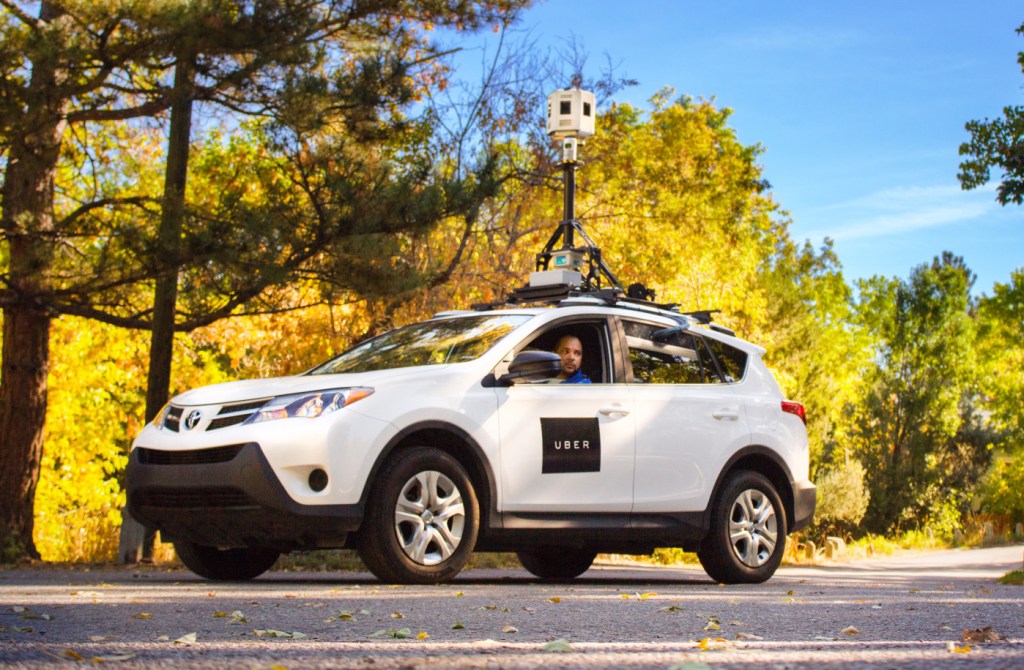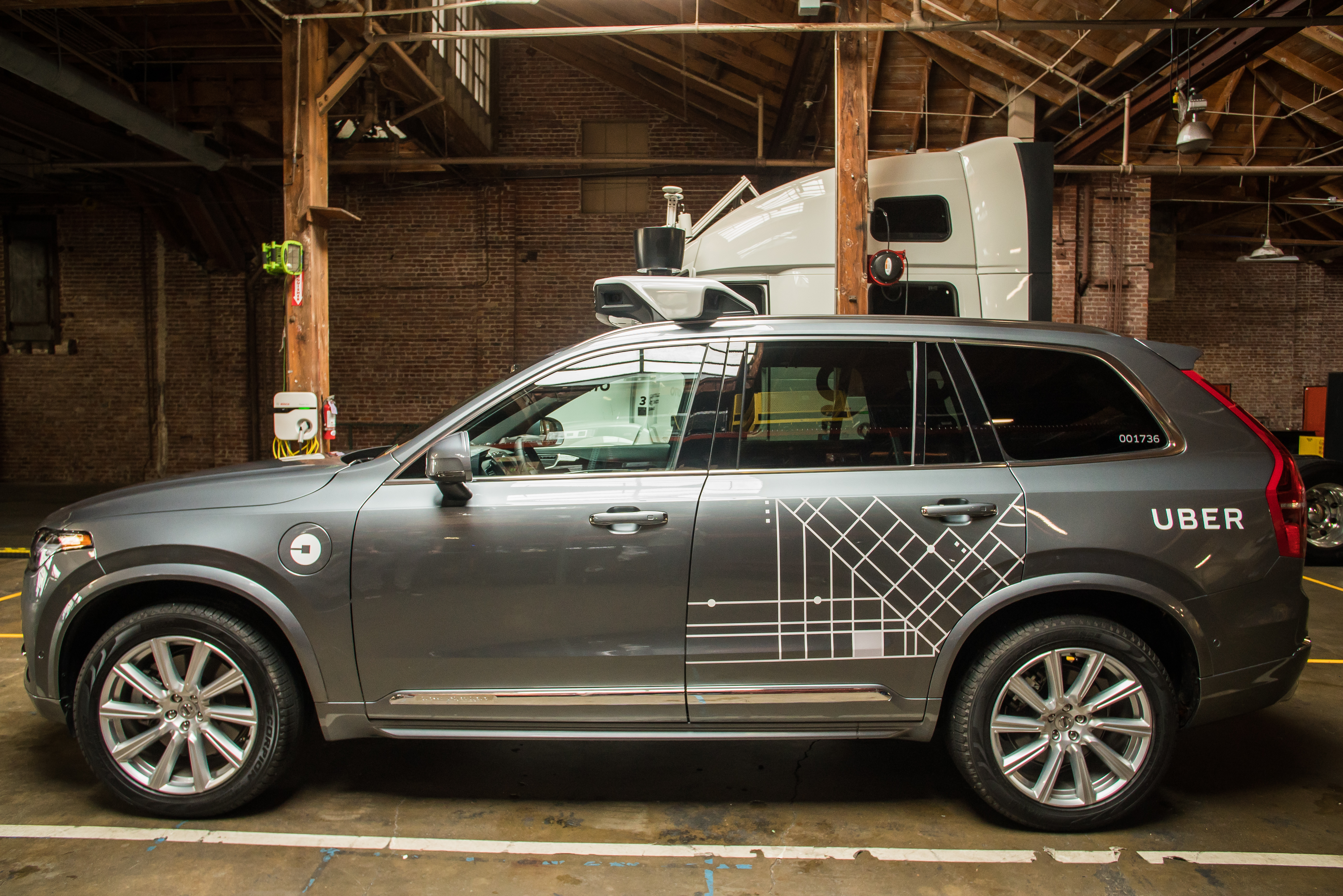Uber’s latest hire has a storied and accomplished history in Silicon Valley – Amit Singhal, former Senior Vice President of Search and employee number 176 at Google, has joined the ride-hailing company as SVP of Engineering.
Singhal will be heading up the Maps and Marketplace departments at Uber, while also advising CEO Travis Kalanick and Uber VP of Engineering and Otto co-founder Anthony Levandowski on their efforts to build out the company’s self-driving technology.
The last time we in tech news circles heard from Singhal, he was saying goodbye after a 15-year career at Google, in a farewell letter that felt a lot like a retirement announcement. Singhal wrote that he was leaving to “see what kind of impact [he could] make philanthropically,” and to “spend more time with [his] family,” in an effort to “define [his] next fifteen years.” Now, a little under a year later, Singhal is back in an executive role – this time at a much younger company, but still at one of the most influential technology firms in the world.
So how did Singhal get from there to here?
Well, for starters, Singhal did throw himself into philanthropic pursuits, focusing on the Singhal Foundation established by him and his wife Shipa, which aims to deliver access to high quality education for kids who normally wouldn’t be able to attend top schools, and which began with a focus on the city of Jodhpur, in India.

“I was indeed leaving Google to spend more times on things that I wanted to do, giving back, to my family, and with the foundation that my wife and I had set up many years prior, but that we were unable to do many things with that we’d hoped to do,” Singhal explained in an interview. “I basically dumped myself into the foundation, and family – by driving my son to school every morning and picking him up – and on the foundation side I’ve been traveling to India every three months to get that foundation program that we’re running off the ground.”
Singhal said that getting the foundation to a place where he and his wife were happy with its progress was like “running a startup from another country,” but that ultimately, the work paid off and they began to be pleased with the result they were seeing.
The first six months were very intense for me – very intense for me,” he said. “After that we got into a rhythm of running the foundation, we took 50 children who are going to school, and are growing that to about 400 children next year, and going on to thousands of children in the coming year. What happened in parallel was that i found a great, great partner to run the foundation in India.”
Meanwhile, Singhal met Travis Kalanick through a mutual friend, which sparked a series of conversations between the search expert and the famous founder about Uber, its goals and its technical challenges. The combination of the scope of both Uber’s potential impact, and the extent of the engineering hurdles it faces in achieving its aims were what drew Singhal in; he is, after all, a true engineer at heart, and mountainous technical challenges attract skilled engineers like nothing else.
“This company also has some of the toughest computer science challenges that I have seen in my career of 25 years.” Amit Singhal, Uber SVP of Engineering
“This company is not only doing things that are amazing, this company also has some of the toughest computer science challenges that I have seen in my career of 25 years,” Singhal told me. “Those computer science challenges for a computer science geek are just intriguing – you give a geek a puzzle, they can’t drop it; they need to solve the puzzle. That’s how it felt to me.”
Singhal says that this long, ongoing conversation with Kalanick ended up conjuring a sort of spell he couldn’t resist, especially given that his philanthropic efforts were back on track with the work put into the foundation during the months immediately following his departure from Google. Uber’s world-changing potential, combined with the tremendous odds it faces in realizing that potential, had hooked Singhal just as it has hooked so many Valley-leading investors, leading academics and other skilled engineers.
“So between things going very well at the foundation, and me actually deeply understanding what Travis and the team here at Uber are trying to do, and how much deep computing, machine learning and artificial intelligence it will take to actually build the dream that this company has, this was something that I couldn’t say no to.”
I asked Singhal about how his experience at Google will help him in his work at Uber. At Google, Singhal was instrumental in helping create the world’s leading search engine through advancements including building contextual awareness into query recognition and ensuring the quality and order of returned results – a massive undertaking that most end users take completely for granted. Ideally, Singhal said, his work will be similarly invisible to most everyday Uber users.
“At Uber, this team is actually hiding so much deep science behind a very simple interface of pushing a button and having a car show up,” Singhal explained. “The science that goes on behind that is equally as complex as what we had to do at Google. My expertise is taking deep science, building amazing engineering to implement that science, and in the process building great teams so that from a user’s perspective, the complexity is hidden, and their lives are improved in one way or another.”
Consider some of Uber’s recent under-the-hood changes to probe some of that technical depth: UberPOOL now attempts to predict pick-ups on the fly from regular users to optimize routes, and also will swap drivers and riders prior to pick-ups if it determines that a new rider or driver who’s just come online will be better positioned in terms of maximizing route efficiency. The number of factors that a computer system has to take into consideration to make those kinds of decisions, and make them effectively, is staggering.
Singhal was also drawn to Uber because of its potential to impact how people live. Mobility is an area that has tremendous potential in terms of impact on people’s lives, he said, and Uber is a company uniquely positioned to address those issues, by offer “mobility to people who wouldn’t have had access to mobility before,” and throughout efforts like UberPOOL, which have the potential to ease urban traffic congestion.
“As soon as we started our foundation’s program, the very first thing we noticed was that mobility to school was a huge challenge for these children, who live in neighborhoods where there isn’t really that much of a proper transportation system,” Singhal said, talking about how the mobility issue was made very apparent in his philanthropic work. “Even if there is a transportation system, the city bus route doesn’t really bring them to that great private school they’re now going to.”
To solve this problem, the Singhal Foundation had to start its own private bus program, since all the regular transit routes were going to pick up the rich children and bring them to the quality schools. Building solutions that could address mobility challenges is one aspect of Uber’s appeal that hits Singhal close to home in more ways than one.
“The challenge is deeply technical, deeply scientific and we will have to do engineering work that has never been done before, combined with science that has not been built yet,” he said. “All of that combines with the fact that my parents are in their mid- to late-70s, and their mobility is going down – I don’t want them to lose their mobility. This is real, it impacts real lives, which makes it so much more important that we all get together to solve this problem for the world.”
We will have to do engineering work that has never been done before, combined with science that has not been built yet. Amit Singhal, Uber SVP of Engineering
I asked Singhal if the problem might not be too big to solve – by his own admission, Uber faces some of the most daunting technical challenges he’s ever seen in his long career, which included building the most complex search algorithms on the planet at Google. The company has had frequent regulatory setbacks, faced a $20 million FTC settlement this week, and a protest earlier Thursday regarding its perceived close ties to the incoming Trump administration. Uber also spent a reported $3 billion last year, too, and a lot of its ambitions, including self-driving, have payoffs on timescales that likely extend out multiple decades from now. Singhal provided a true engineer’s answer.
“The hard problem is what we are here to solve,” he said.

































Comment